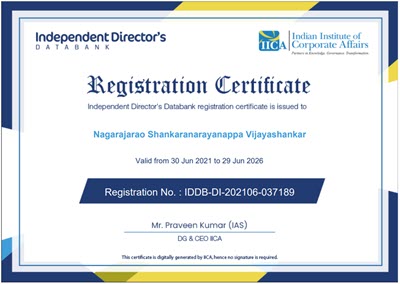A Few days back there were reports in the press about Government of India ordering an enquiry on Flipkart under provisions of competition law following some problems that arose during the Big Billion Day sale.
Government of India has now clarified that there would be no investigation on the Flipkart’s Big Billion Day sales in which unfair trade practices were alleged.
The Minister of Commerce Nirmala Seetharaman had earlier made a statement that indicated that an enquiry could be ordered based on the complaints of the meta society traders who could not digest the possibility of their pre-Diwali sale getting adversely affected by the online sale. Now the Minister has stated that here earlier statement was mis-quoted.
We are happy that the earlier stand which was unjustified has been rejected.
In the meantime, Karnataka Government seems to have its own issue on the online traders concerning payment of VAT. According to the report, the Government had raised an objection with Amazon claiming that the goods stocked at the Amazon facilitation center should be treated as “Practically” belonging to Amazon. This view is unlikely to have any legal validity since it has the effect of re-defining the age old concepts of contract act just to pre-pone the collection of tax. This sort of distortion of law for immediate short term gains of tax collection is ill advised and we hope that better counsel will prevail.
It is difficult to understand why Government officials cannot appreciate that flipkart.com or amazon.in or snapdeal.com are merely shops in the cyber space. Their business models may either be like a shop front where the goods are bought from dealers by the website and re-sold to its customers or the sale can be on an exhibition mode where the website acts merely as a space used by the dealers to make their own sales with a commission paid to the space owner either as a cut in the sale revenue or otherwise.
Unless Government wants to double tax the transactions, there is no difference between collecting the tax either from the dealer or from the website. But the liability will depend on the contract between the dealer and the website which may vary from one website to another and also from one dealer to another.
There could however be some debate on the incidence of Inter State levies. When a customer of one state buys a product from say Flipkart which bills the transaction in Karnataka, the state where the customer is residing may chose to charge an “entry tax” and collect it through the courier.
With all the discussion about GST going on, there is no need to complicate the E Commerce business by such extreme views on inter state transactions even if the current laws may make it possible. In all E Commerce transactions, there is a fair share of sale returns and replacements and it would be a real pain to account for tax on such transactions if each state wants to collect a portion of the tax.
In the event Government tries to squeeze the industry, it is possible for E Commerce sites to shift to off shore locations or arrange to deliver the goods from the godowns in each state.
All this will not significantly increase the revenue of the States but may inconvenience a Netizen and delay the E Commerce delivery. Netizens as a category should raise their voice against such obnoxious thoughts that some Governments may entertain.
There is perhaps one solution which is in the hands of the Central Government to prevent this issue from becoming a dampener for Digital India.
Possibly the Ministry of Information Technology can amend Information Technology Act 2000/8 with the proviso
“Not withstanding any thing contained in any law, and in the absence of an agreement to the contrary, any commercial transaction effected through Internet where any one of the parties to the transaction is located in India, is deemed to have been completed in the jurisdiction of the Indian National Cyber Space and not in the jurisdiction of any of the States in India and shall be subject to taxation and regulation only by the Government of India”
For all practical purposes, the Indian Cyber Space would then be equivalent to a new Union Territory controlled by the Government of India. This will prevent each State intervening in the E Commerce transactions in the greed of generating revenue.
Naavi










